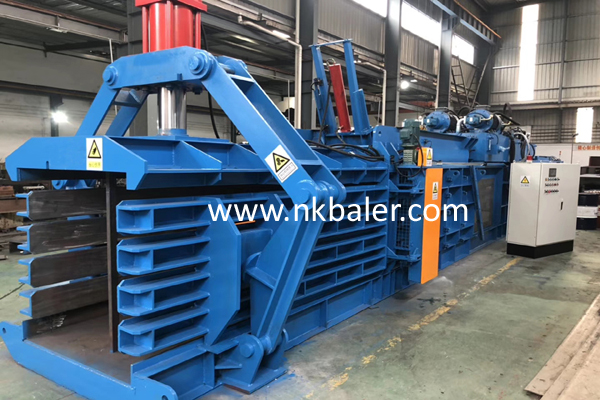Small waste paper balers are primarily suitable for baling cotton wool,waste cotton,loose cotton,and are used in livestock,printing,textiles,papermaking,and other industries for baling straw,paper trimmings,wood pulp,and various scrap materials and soft fibers.The motor series products are widely applicable in metallurgy,petroleum,chemical,mechanical manufacturing,and other industries; the cotton machinery series products are mainly supporting equipment accessories for cotton processing,used in cotton processing factories.Advantages of small waste paper balers:Direct shipment from the manufacturer:All small waste paper balers are directly shipped from the manufacturer,offering reasonable prices without middleman markups.Long continuous operation:The machine is designed with thickened steel bodies to allow for long periods of continuous operation,saving time andeffort.Customizable:Customers can customize small waste paper balers according to their needs to meet diverse requirements.High-quality oil pump:High-pressure piston oil pumps feature high efficiency,low noise,and high quality.Small waste paper balers are used to compact waste paper and similar products under normal conditions and package them with special baler tape,significantly reducing their volume.This aims to reduce transportation volume and save on freight costs,thereby increasing profits for businesses.They are used for baling waste paper (cardboard boxes,newsprint,etc.),waste plastics (PET bottles,plastic films,turnover boxes,etc.),straw,and other loose materials.How to inspect a small waste paper baler before use When purchasing a small waste paper baler,we recommend that customers first visit the manufacturer to understand the precision of workmanship,process design,and supporting components.This way,customers will have a general understanding when making a purchase and can communicate with the manufacturer to choose the appropriate model.Additionally,how do we check if a small waste paper baler is functioning normally and ready for operation after purchase?Firstly,load testing of the small waste paper baler After familiarizing with the operation of a single cylinder,proceed with the load test.Adjust the system pressure of the small waste paper baler so that the pressure gauge reads about 20~26.5Mpa,tighten and secure the nuts.Follow the operating sequence to perform several baling sequences.Feed the compression chamber and conduct the load test using actual baling.Compact 1~2 blocks and keep the pressure for 3~5 seconds after each cylinder stroke of the small waste paper baler,conducting a pressure test on the system to observe for any oil leakage.If any is found,resolve it after the system is depressurized.Secondly,no-load testing of the small waste paper balerConnect the power supply to the small waste paper baler,loosen the system relief valve to allow the system to overflow,start the motor (using a method where it starts and then stops immediately),and observe whether the motor’s rotation direction matches the oil pump’s marked direction.Start the motor and observe whether the oil pump operates smoothly and reliably during its operation.Check for any significant noise within the pump; if none is present,proceed with the test run.
Gradually adjust the relief valve handle of the small waste paper baler so that the pressure gauge reads about 8Mpa,operate according to the sequence,actuate each cylinder individually,observe whether its operation is smooth without vibration,and gradually adjust the parallelism of the main compression cylinder,side compression cylinder with the base plate and side frame,secure the main compression cylinder,side compression cylinder,and support the end of the cylinder with an adjustable bracket.Installation considerations for small waste paper balers include:ensuring the equipment is placed on a flat,dry surface,connecting a stable power source,and performing safety checks.
Post time: Aug-26-2024
